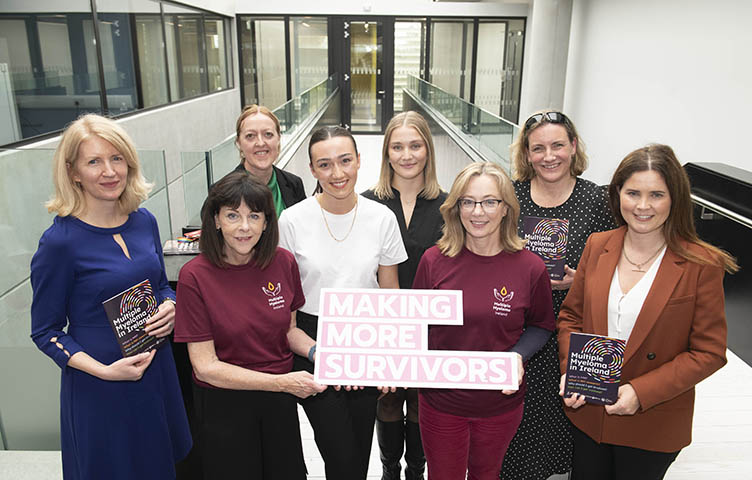It is a challenging moment when a person hears they have a serious and incurable illness. Now imagine they had never even heard the name of the disease before.
This is often the case with multiple myeloma, a type of blood cancer that is newly diagnosed in around 400 people in Ireland each year.
Most people have not heard of the disease at the time they are diagnosed, often confusing it with melanoma, which is a skin cancer. But multiple myeloma affects the bone marrow and blood, rather than the skin.
Patients with multiple myeloma are often diagnosed when the disease is quite advanced, because some of the main symptoms of the disease (such as anaemia, bone pain, frequent infections and kidney problems) are similar in many illnesses and so harder to pin down.
So it is a great shock to patients when they learn they have a blood cancer, and one that is not only serious but incurable. While multiple myeloma is treatable and new treatments are being developed, currently only 30% of patients will be alive 10 years after diagnosis, compared to more than 90% for prostate cancer and more than 80% for breast cancer.
Researchers at the Beaumont RCSI Cancer Centre worked with representatives from Multiple Myeloma Ireland, patients and a patient advocate, and identified that increasing awareness about multiple myeloma could bring many benefits. It would help people to know more about the symptoms and seek the appropriate medical support, potentially lessen the shock of a diagnosis and help patients understand more about the long-term options after diagnosis.
This is why two RCSI University of Medicine and Health Sciences student researchers, Niamh McAuley and Izabela Drozdz, worked with researchers, patients and patient advocates to develop a new, public-friendly booklet about multiple myeloma, under the guidance of expert cancer researchers Professors Siobhan Glavey and Ann Hopkins.
The 20-page booklet Multiple Myeloma in Ireland aims to make the term ‘multiple myeloma’ a recognised name and to accelerate the fight to make it a curable illness.
Researchers from around Ireland contributed insights for the booklet, and these are set out in easy-to-access language for people to learn more about the disease, how it is currently treated and the type of research that will hopefully lead to new treatments in the future.
Physical, printed booklets will reach a wide audience around Ireland in HSE Primary Health Care Centres, GP surgeries and pharmacies, and online on the websites of the Beaumont RCSI Cancer Centre, Multiple Myeloma Ireland, Breakthrough Cancer Research and Myeloma Patients Europe.
One of the potential impacts is that patients will engage more widely with research in blood cancers, speeding up processes for understanding disease progression and designing and testing new treatments, and getting new drugs into clinical trials sooner.
The booklet Multiple Myeloma in Ireland was funded through Breakthrough Cancer Research and the Health Research Board under Health Research Charities Ireland grant HRCI-HRB-2022-020. You can download the booklet here.
RCSI is committed to achieving a better and more sustainable future through the UN Sustainable Development Goals.
![]()
![]()


